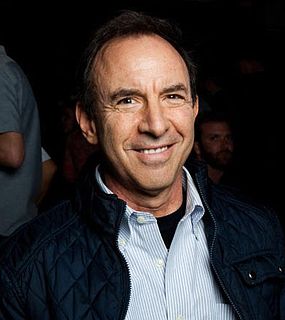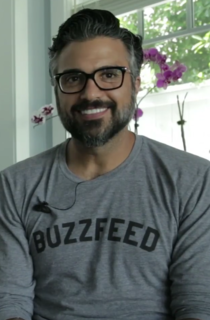A Quote by Maajid Nawaz
Having our fundamental assumptions about life challenged is never a comfortable thing.
Quote Topics
Related Quotes
When George W.Bush attacked Afghanistan, it was widely hailed, and the failure of our war there wasn't understood. Within a few months of attacking Afghanistan, Bush clearly moved on to get ready for Iraq, long before Osama bin Laden or Al Qaeda were dispensed with. There was never any serious debate in the press about whether even the notion that every Taliban was our enemy was valid. A lot of assumptions about that war were never challenged.
We have a tendency to make assumptions about everything! The problem with making assumptions is that we believe they are truth. We could swear they are real. We make assumptions about what others are doing or thinking-we take it personally-then we blame them and react by sending emotional poison in our word. That is why whenever we make assumptions, we're asking for problems. We make assumptions, we misunderstand, we take it personally, and we end up creating a whole big drama for nothing.
If others tell us something we make assumptions, and if they don't tell us something we make assumptions to fulfill our need to know and to replace the need to communicate. Even if we hear something and we don't understand we make assumptions about what it means and then believe the assumptions. We make all sorts of assumptions because we don't have the courage to ask questions.
If you don't feel challenged, it's because you're not doing enough. Ballet should never feel comfortable. Comfortable is lazy! If you're comfortable when you dance, you're not pushing yourself hard enough. 100 % is not enough. You have to give 200%. One tendu takes years of hard work and will never be perfect. Everything in ballet is a challenge.
I don't care about having a legacy, I don't care about being remembered. The most important thing to me is, while we're here, while we're having fun, while we're sleeping, breathng oxygen, living life, falling in love, having pain and having joy...what can we do with our voice to make things easier, to help someone to make it better for our kids.
There will be some fundamental assumptions which adherents of all the variant systems within the epoch unconsciously presuppose. Such assumptions appear so obvious that people do not know what they are assuming because no other way of putting things has ever occurred to them. With these assumptions a certain limited number of types of philosophic systems are possible, and this group of systems constitutes the philosophy of the epoch.
Dialogue is a space where we may see the assumptions which lay beneath the surface of our thoughts, assumptions which drive us, assumptions around which we build organizations, create economies, form nations and religions. These assumptions become habitual, mental habits that drive us, confuse us and prevent our responding intelligently to the challenges we face every day.
What's going on is that our most fundamental ideas about life are not serving us. They never have. But now, with our advances in communication and technology, the situation has become critical - for our mechanisms have outrun our mentality. And so we find ourselves trying to solve the dilemmas of tomorrow with the solutions of yesterday.





































